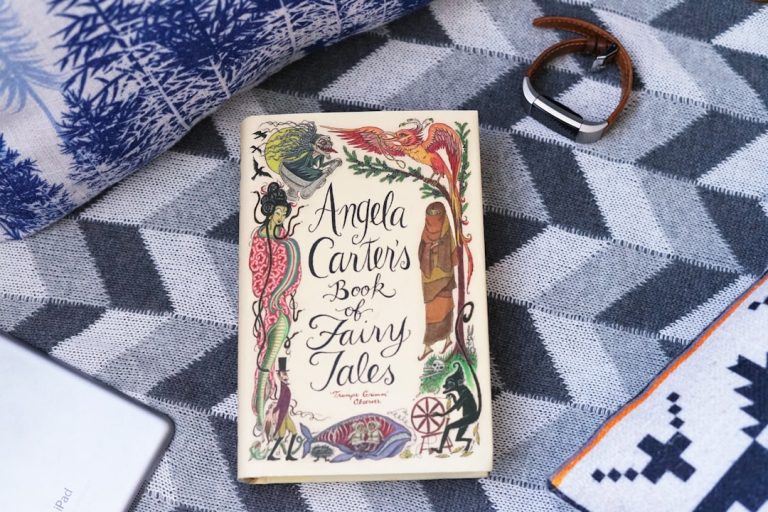
The integration of music into language learning has gained traction in recent years, as educators and learners alike recognize the potential of song lyrics to enhance linguistic skills. Music is a universal language that transcends cultural barriers, making it an effective tool for engaging learners in a dynamic and enjoyable manner. The rhythmic and melodic qualities of songs can aid in memory retention, pronunciation, and comprehension, providing a multi-sensory approach to language acquisition.
By immersing themselves in the lyrical content of songs, learners can experience the language in context, which is crucial for developing a deeper understanding of its nuances. Moreover, songs often encapsulate cultural references, idiomatic expressions, and colloquialisms that are integral to mastering a language. This exposure not only enriches vocabulary but also fosters an appreciation for the cultural backdrop against which the language is spoken.
As learners sing along or analyze lyrics, they engage with the language on multiple levels—listening, speaking, reading, and even writing—creating a holistic learning experience. The emotional connection that music evokes can also motivate learners to persist in their studies, making the process of language acquisition more enjoyable and less daunting.
Key Takeaways
- Using song lyrics for language learning can be a fun and effective way to improve language skills.
- Benefits of using song lyrics for language learning include improved pronunciation, vocabulary expansion, and cultural understanding.
- When choosing songs for language learning, consider the genre, tempo, and complexity of the lyrics to match your language proficiency level.
- Techniques for using song lyrics to improve language skills include listening for specific words, analyzing the lyrics, and practicing pronunciation.
- Incorporating song lyrics into language learning curriculum can enhance engagement and provide a real-world context for language use.
Benefits of Using Song Lyrics for Language Learning
One of the primary benefits of using song lyrics in language learning is the enhancement of listening skills. Songs often feature varied accents, intonations, and rhythms that can challenge learners to attune their ears to different sounds and pronunciations. This exposure is particularly beneficial for learners who may struggle with understanding spoken language in real-life situations.
By repeatedly listening to songs, learners can improve their ability to discern words and phrases, ultimately leading to better comprehension in conversational contexts. Additionally, song lyrics provide a rich source of vocabulary that is often more relevant and relatable than traditional textbook examples. Many songs incorporate everyday language, slang, and expressions that are commonly used by native speakers.
This exposure allows learners to acquire vocabulary in context, which is essential for retention. For instance, a learner studying English might come across phrases like “hit the road” or “break the ice” in a song, gaining insight into their meanings and appropriate usage. Furthermore, the emotional resonance of music can make these phrases more memorable, as learners associate them with the feelings evoked by the song.
How to Choose the Right Songs for Language Learning

Selecting appropriate songs for language learning requires careful consideration of several factors. First and foremost, the complexity of the lyrics should align with the learner’s proficiency level. For beginners, songs with simple vocabulary and clear enunciation are ideal.
Tracks like “Twinkle Twinkle Little Star” or “If You’re Happy and You Know It” offer straightforward language that is easy to grasp. As learners progress, they can explore more intricate songs that introduce idiomatic expressions and complex sentence structures. Another important aspect to consider is the genre of music.
Different genres often reflect distinct cultural contexts and linguistic styles. For example, pop music frequently features catchy hooks and repetitive phrases that can aid in memorization, while folk music may delve into storytelling with rich imagery and metaphorical language. Additionally, learners should consider their personal musical preferences; engaging with songs they enjoy will enhance motivation and make the learning process more enjoyable.
A learner who loves rock music might find inspiration in classic bands like The Beatles or contemporary artists like Ed Sheeran, while someone drawn to hip-hop could benefit from analyzing the intricate wordplay found in artists like Kendrick Lamar or J. Cole.
Techniques for Using Song Lyrics to Improve Language Skills
| Technique | Description |
|---|---|
| Lyric Analysis | Students analyze the meaning of song lyrics to improve vocabulary and comprehension. |
| Lyric Cloze Exercise | Students fill in the missing words in song lyrics to practice grammar and vocabulary. |
| Lyric Retelling | Students retell the story or message of a song in their own words to practice speaking and writing skills. |
| Lyric Translation | Students translate song lyrics from one language to another to improve language proficiency. |
There are numerous techniques that educators and learners can employ to maximize the benefits of song lyrics in language learning. One effective method is the “lyric gap-fill” exercise, where learners listen to a song while filling in missing words from the lyrics. This activity not only sharpens listening skills but also encourages learners to focus on pronunciation and context clues.
For instance, a teacher might play a popular song and pause at key moments, prompting students to write down what they hear. This technique can be particularly engaging when paired with songs that have repetitive choruses or verses. Another valuable approach is to analyze the lyrics for thematic content and vocabulary usage.
Educators can guide discussions around the meaning of specific lines or phrases, encouraging learners to express their interpretations and personal connections to the song. This not only fosters critical thinking but also promotes speaking skills as learners articulate their thoughts in the target language. Additionally, creating visual aids such as lyric posters or infographics can help reinforce vocabulary and concepts introduced in the song.
By transforming lyrics into visual representations, learners can engage with the material in a new way, catering to different learning styles.
Incorporating Song Lyrics into Language Learning Curriculum
Integrating song lyrics into a language learning curriculum can be a transformative experience for both educators and students. To effectively incorporate music into lessons, teachers can design thematic units centered around specific topics or cultural elements reflected in songs. For example, a unit on love and relationships could feature romantic ballads from various cultures, allowing students to explore how different societies express affection through music.
This thematic approach not only enriches vocabulary but also provides cultural insights that deepen learners’ understanding of the language. Moreover, educators can create collaborative projects where students work together to analyze songs and present their findings to the class. This could involve researching the background of a particular artist or genre, discussing the historical context of a song’s lyrics, or even composing original lyrics inspired by what they’ve learned.
Such activities promote teamwork and communication skills while reinforcing language concepts in an engaging manner. By fostering a sense of community through music, educators can create a supportive environment where learners feel comfortable experimenting with their language skills.
Using Song Lyrics for Vocabulary Building

Creating Personalized Vocabulary Flashcards
One effective strategy is to compile a list of new words encountered in a song and create personalized vocabulary flashcards. Learners can write down the word on one side and its definition or an example sentence on the other side. This method encourages active engagement with new vocabulary while reinforcing retention through repetition.
Thematic Word Banks
Educators can encourage students to create thematic word banks based on specific songs or genres. For instance, if analyzing a song about nature, students might compile words related to flora and fauna found within the lyrics. This not only expands their vocabulary but also allows them to make connections between words and their meanings in context.
Making Vocabulary Building Interactive
Furthermore, incorporating games such as word searches or crossword puzzles based on song lyrics can make vocabulary building more interactive and enjoyable.
Using Song Lyrics for Grammar Practice
Incorporating song lyrics into grammar practice offers a unique opportunity for learners to see grammatical structures in action within authentic contexts. Educators can select songs that exemplify specific grammatical points—such as verb tenses, conditional sentences, or passive voice—and use them as teaching tools. For example, a song featuring past tense verbs can prompt discussions about their usage and formation while allowing students to identify examples within the lyrics.
Another effective technique is to create grammar-focused activities based on song lyrics. Teachers might ask students to rewrite certain lines using different grammatical structures or challenge them to identify errors within the lyrics (if applicable). This not only reinforces grammatical concepts but also encourages critical thinking as students analyze how grammar shapes meaning within the context of a song.
By engaging with grammar through music, learners are more likely to internalize rules and apply them in their own writing and speaking.
Resources for Finding Song Lyrics for Language Learning
A wealth of resources exists for educators and learners seeking song lyrics suitable for language learning purposes. Websites such as Genius.
Additionally, platforms like Lyrics.com allow users to search for songs by genre or theme, facilitating targeted exploration based on specific learning objectives.
Streaming services like Spotify or Apple Music often curate playlists designed for language learners, featuring songs that are both popular and linguistically accessible. These playlists can serve as excellent starting points for educators looking to introduce music into their curriculum. Furthermore, social media platforms like YouTube offer countless lyric videos that combine visual elements with audio content, enhancing engagement through multimedia resources.
By leveraging these tools, educators can create diverse and enriching learning experiences centered around song lyrics that resonate with their students’ interests and needs.
One related article to using song lyrics for language learning exercises can be found on Sersea Ink’s website. The article discusses the benefits of incorporating stories into language learning, highlighting how storytelling can help improve vocabulary, grammar, and overall comprehension. To read more about this topic, you can visit this link.
FAQs
What are some benefits of using song lyrics for language learning exercises?
Using song lyrics for language learning exercises can help improve vocabulary, pronunciation, listening skills, and cultural understanding. It can also make learning more enjoyable and engaging.
How can song lyrics be used for language learning exercises?
Song lyrics can be used for various language learning exercises such as filling in the blanks, matching words with their meanings, translating lyrics, and analyzing grammar and sentence structure.
What types of language skills can be improved by using song lyrics for language learning exercises?
Using song lyrics for language learning exercises can help improve listening, speaking, reading, and writing skills. It can also enhance vocabulary and grammar knowledge.
Are there any specific genres of music that are more suitable for language learning exercises?
The choice of music genre for language learning exercises depends on the learner’s preferences and the language being learned. However, songs with clear and understandable lyrics are generally more suitable for language learning exercises.
Can song lyrics be used for learning multiple languages?
Yes, song lyrics can be used for learning multiple languages. Many popular songs are available in different languages, making it possible to use the same song for language learning exercises in various languages.



